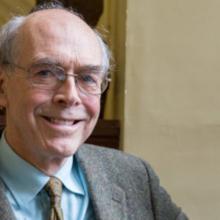Oliver O’Donovan
Professor Emeritus, Christian Ethics and Practical Theology, University of Edinburgh.
Honorary Professor, School of Divinity, University of St. Andrews
Emeritus Student & Canon of Christ Church, Oxford.


Professor Emeritus, Christian Ethics and Practical Theology, University of Edinburgh.
Honorary Professor, School of Divinity, University of St. Andrews
Emeritus Student & Canon of Christ Church, Oxford.
Oliver O’Donovan, born in 1945 in London, was educated at Balliol College and Wycliffe Hall, Oxford, and at Princeton University, and was ordained priest in Oxford in 1972. He was Regius Professor of Moral and Pastoral Theology and Canon of Christ Church Oxford (1982-2006), before which he taught at Wycliffe Hall, Oxford (1972-7) and at Wycliffe College, Toronto (1977-82). He was Professor of Christian Ethics and Practical Theology at Edinburgh (2006-12), and has been Honorary Professor of Divinity at St Andrews since 2013. He has written on Augustine, on the theological basis of moral concepts, on contemporary bioethical dilemmas, on political theology and the ethics of war. He has served on the Church of England’s Board for Social Responsibility, Doctrine Commission and Faith and Order Commission, and was recently convenor of the Archbishops’ review of the Crown Nominations Commission. He is a past President of the Society for the Study of Christian Ethics, a Fellow of the British Academy and a Fellow of the Royal Society of Edinburgh. He is married to Joan Lockwood O’Donovan. They live in Scotland and have two sons.
I am presently working on a series of reflections on the relation of love and justice in divine and human action.